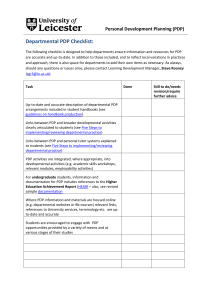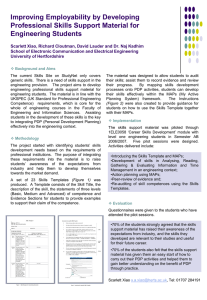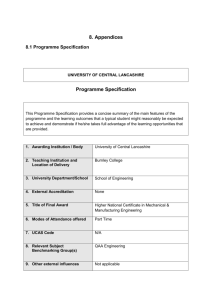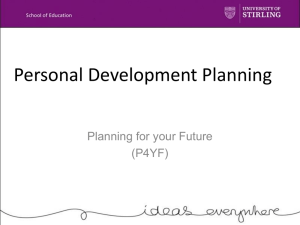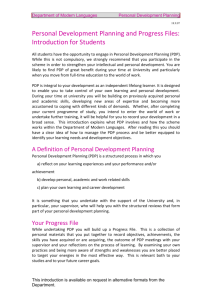PDP: Five steps to implementing/reviewing departmental practice
advertisement
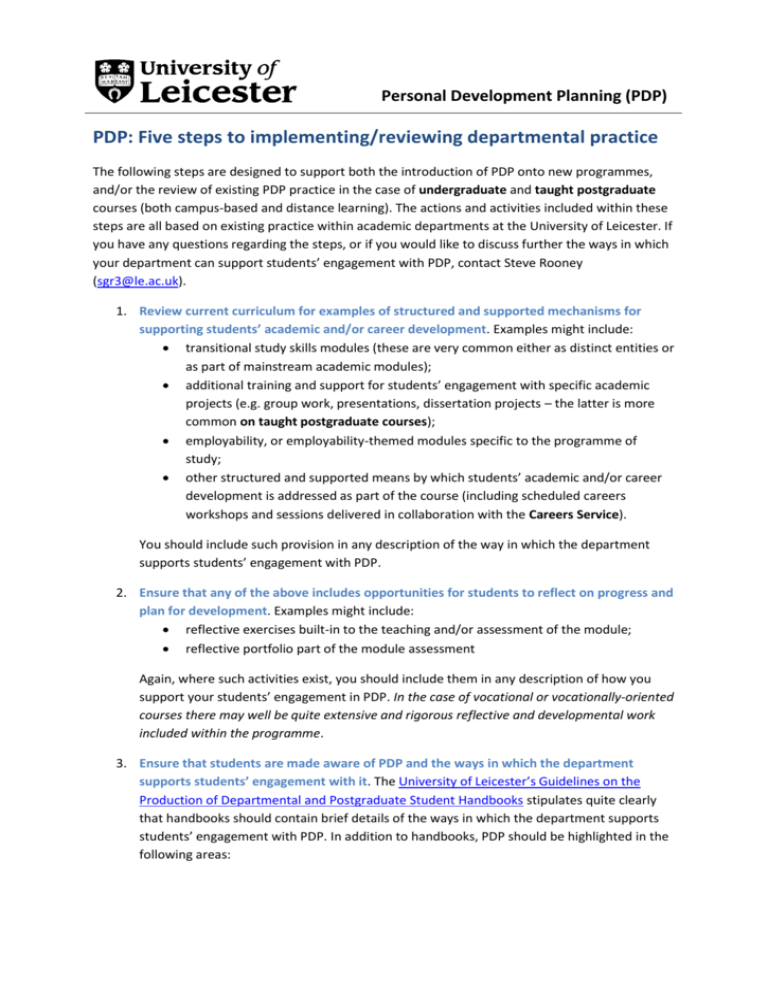
Personal Development Planning (PDP) PDP: Five steps to implementing/reviewing departmental practice The following steps are designed to support both the introduction of PDP onto new programmes, and/or the review of existing PDP practice in the case of undergraduate and taught postgraduate courses (both campus-based and distance learning). The actions and activities included within these steps are all based on existing practice within academic departments at the University of Leicester. If you have any questions regarding the steps, or if you would like to discuss further the ways in which your department can support students’ engagement with PDP, contact Steve Rooney (sgr3@le.ac.uk). 1. Review current curriculum for examples of structured and supported mechanisms for supporting students’ academic and/or career development. Examples might include: transitional study skills modules (these are very common either as distinct entities or as part of mainstream academic modules); additional training and support for students’ engagement with specific academic projects (e.g. group work, presentations, dissertation projects – the latter is more common on taught postgraduate courses); employability, or employability-themed modules specific to the programme of study; other structured and supported means by which students’ academic and/or career development is addressed as part of the course (including scheduled careers workshops and sessions delivered in collaboration with the Careers Service). You should include such provision in any description of the way in which the department supports students’ engagement with PDP. 2. Ensure that any of the above includes opportunities for students to reflect on progress and plan for development. Examples might include: reflective exercises built-in to the teaching and/or assessment of the module; reflective portfolio part of the module assessment Again, where such activities exist, you should include them in any description of how you support your students’ engagement in PDP. In the case of vocational or vocationally-oriented courses there may well be quite extensive and rigorous reflective and developmental work included within the programme. 3. Ensure that students are made aware of PDP and the ways in which the department supports students’ engagement with it. The University of Leicester’s Guidelines on the Production of Departmental and Postgraduate Student Handbooks stipulates quite clearly that handbooks should contain brief details of the ways in which the department supports students’ engagement with PDP. In addition to handbooks, PDP should be highlighted in the following areas: relevant areas of module or programme level Blackboard sites (the guidance contained within the templates for module and programme level Bb sites on Bb 9.1 includes advice on where to include appropriate references to PDP); during induction periods; as part of the descriptions of any relevant modules (see Step 1); at appropriate intervals in the academic calendar (e.g. ahead of first scheduled personal tutor meeting, or at the outset of relevant module) 4. Ensure that students have access to centrally designed and/or adapted documentation and exercises to support engagement with PDP. Many departments have adapted or created their own reflection and planning documentation to support students’ engagement with PDP. Departments are welcome, however, to make use of centrally provided exercises and documentation. To discuss documentation in your department, contact Steve Rooney (sgr3@le.ac.uk). 5. Ensure that PDP is incorporated within departmental personal tutor systems. Whilst discussion of PDP need not define a student’s engagement with PDP, it is important that students are provided with the option to discuss their personal development with their tutor. Indeed, the Code of Practice for Personal Support for Students on Taught Programmes clearly stipulate that the provision of support for students’ personal development is a requirement of departmental personal tutor systems.
